The Marvellous Ms Maxine Wade
Colourful, gobby and opportunistic
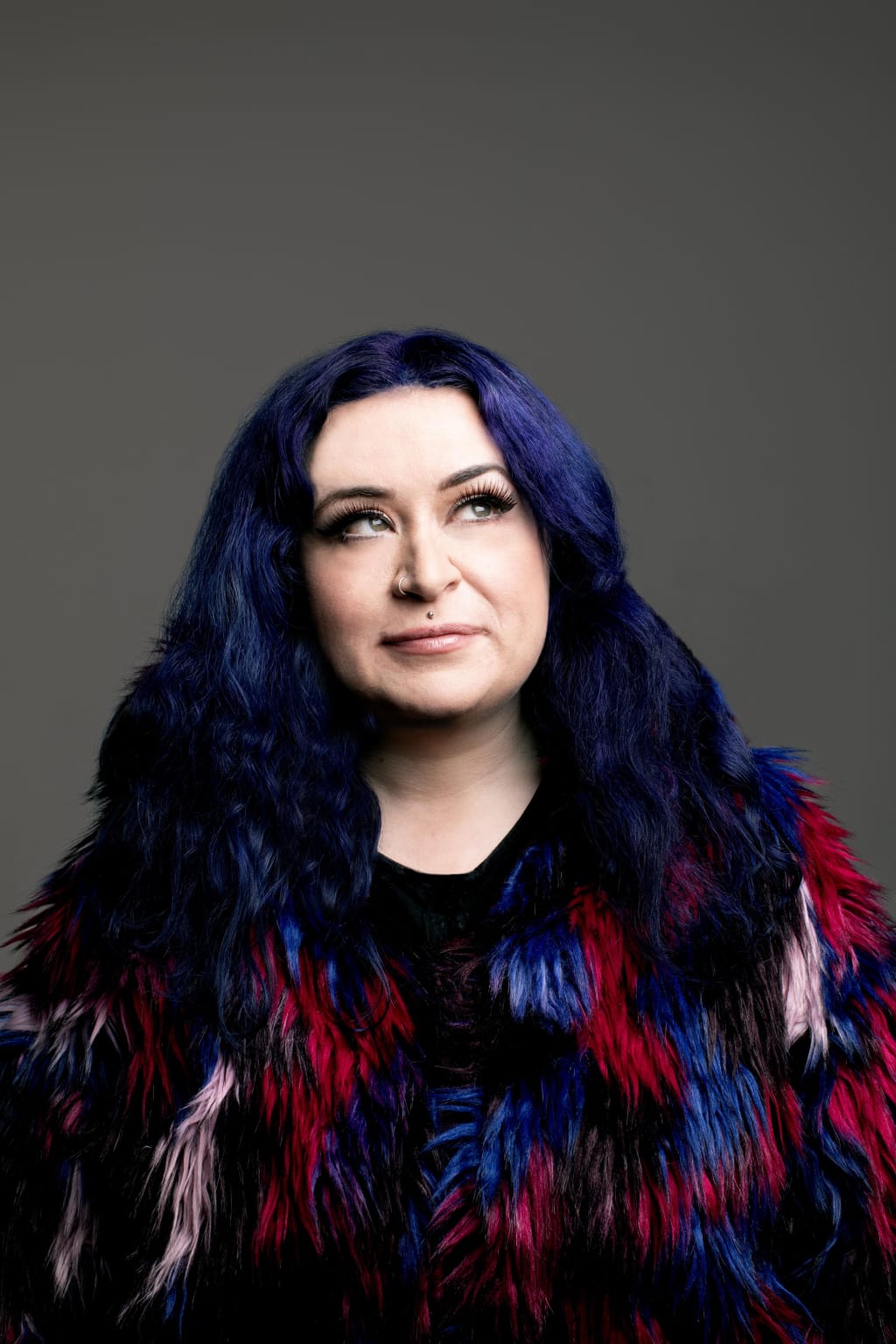
This is a picture of my mate – the marvellous Maxine Wade. She is a comedian who nurses and a nurse who does comedy, all with hair the colour of a Tango Ice-Blast (description courtesy of one of her patients).
We make an unlikely duo: a young, tattooed nurse and a middle-aged, reserved academic. But we’ve both had each other’s backs through the trials of being on the comedy circuit. She has been at my side when I fainted in a surprising heatwave in Edinburgh. And she knows I’m there for those difficult chats and a drive home when the trains fail.
I first met Maxine when we were part of an all-female line-up at a stand up gig in Derby. And from the moment I saw her on stage, she impressed me as a naturally funny presence, holding the audience in her hand. She is also a joy as an audience member, with an unbridled hacking laugh, so you know when a joke has landed.
I want to interview and write about a range of story tellers that I have met in my creative journey. Maxine is a damned fine place to start. This article is what happens when an ex-academic sits down to interview her nursing mate about story-telling.
Academic habits die hard. Before I set the tape rolling I made the sort of speech that is usually accompanied with an information sheet and a consent form. But I wanted to make sure that Maxine knew I wasn’t going to publish anything she wasn’t happy with.
The first thing Maxine gave me, once the tape started rolling, was the subtitle of this piece. She described herself as “colourful, gobby and opportunistic”.
And what followed was an insightful discussion about how gender and class intersect in the world of comedy. Told you I used to be an academic. So, what do I mean by the intersection of class and gender? I’d best let Maxine’s words do the explaining:
“I have been described as gobby. I think it’s a word for working-class, northern woman with opinions.
When you talk like this, people expect you to be thick.
We don’t hear genuine, articulate, northern working-class voices. That makes it easy to justify the class and wealth divide between north and south, if they don’t see us.”
Much of the conversation was focused on identity and the issue of class was never far away. To love Maxine, (like I do) means you have to love the things she stands for, including being vocal about inequality, whether that be in nurses wages or representation on the comedy circuit.
I’m a working class northern woman. I mean my Mum’s a lollipop lady. I don’t think you can get more Northern than that (unless she worked behind the bar at The Woolpack)
I’m aware that that sentence may lose my non-British readers, but it was followed by raucous laughter, as we ate our brunches in a Leeds café.
As identity was emerging as a theme of conversation, I asked specifically whether she is a comedian who nurses, or a nurse who does comedy.
I am both – it changes depending on my mindset. Comedy relieves the stress of nursing and gives me the chance to say things I can’t say as nurse.
It varies with mood. Like a lot of comedians, I get imposter syndrome.
I can hide behind nursing to some extent because at least I’ll always have that. Whereas if comedy is not going so well, I can say that I’m a nurse that just does comedy.
But then nursing is a part of my comedy persona.
And class raises its head again. As a working class woman there is no fall-back if comedy doesn’t work out, and so Maxine has to have a ‘proper’ job, which doesn’t always sit well with the PR managed world of comedy.
There is still a lot of stigma about doing comedy and having a day job and the whole idea. I was told early on not to tell the audience that you have a day job because then they lose the image of that, them seeing you as a comedian. And I disagree. I think it’s relevant. It’s interesting for me when you see a comedian on stage and I want to see them talk about something different, and original and relevant for them. I think it’s much better that I do comedy about the context, about the job I’m doing.
She jokes about the bundle of contradictions she is.
When I first started nursing, I had this overwhelming sense I wanted to help people, a duty. But comedy it is more of a duty to myself. Nursing is altruistic, but comedy is possibly one of the most selfish, narcissistic things you can possibly do.
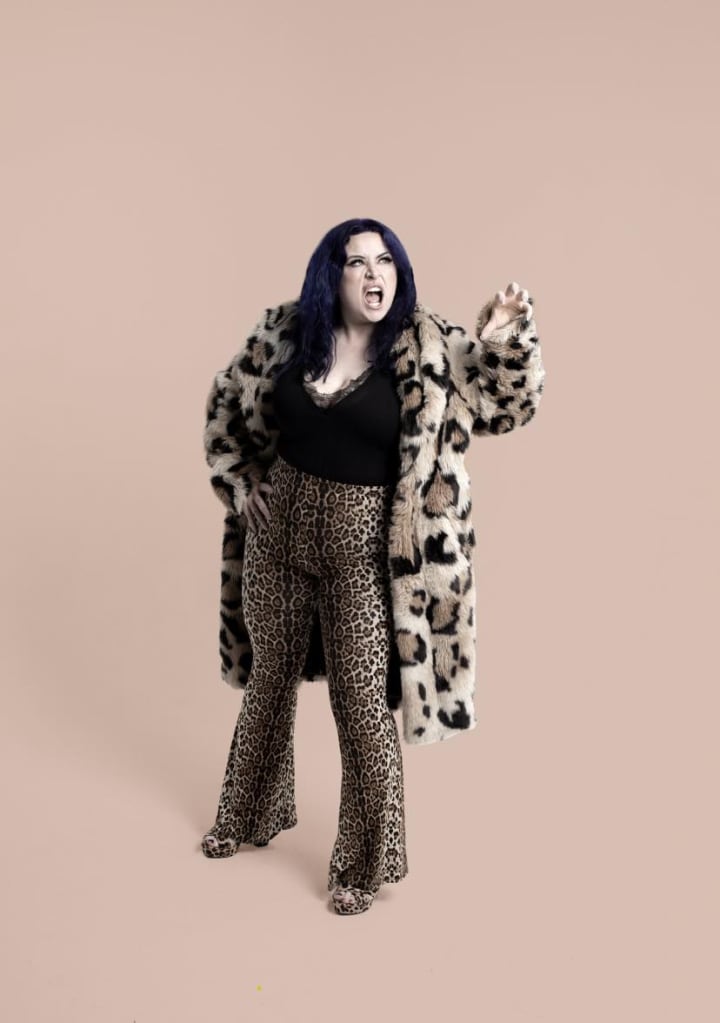
But I couldn’t let this lie, because earlier this year, Maxine premiered her one-woman show – The Nearly Wed. The Nearly Wed is an autobiographical show about living through and leaving an abusive relationship. To put that story out there is hardly a narcissistic act. It is courageous. It is about social justice. It is about saying there is life for survivors after abuse.
It started with a narcissistic intent. I felt a lot of shame about it and I wanted to talk about that, a toxic relationship, his drugs and alcohol abuse and my own poor mental health.
As Maxine talks about the show, it is hard to ignore my own background as a researcher of domestic abuse. What I am hearing is trauma. Trauma that is both past, and still very much in the present.
I still feel I go for people who aren’t good for me. I’ve still got some stuff to learn as a person. But one of the problems with the show is that I think people read it as I’m still pining for him. I don’t think about him anymore. But it was a big part of my life. It was the last serious relationship I was in. But I’m comfortable with the progress I’ve made and the decision to leave. But the relationship has scarred me…
When someone chooses to be abusive the contempt they have for you, it makes you feel – it damages your soul.
Oof – “It damages your soul”.
I want this to be heard loud and clear, for all the people at the back. Leaving someone who professes to love you whilst also abusing you, might look from the outside like a no-brainer, an easy decision. But it is one of the most courageous things I’ve witnessed. Talking to survivors of abuse, I was always impressed by their resolve and their acknowledgement that the abuse had left ripples of damages and scars to their identity. Maxine is one of those strong women that I have been privileged to talk to and she says it so well.
Once you leave the relationship, that is just the beginning of the whole journey you need to make of getting yourself to a safe place. It’s a journey of exploring why I haven’t had a relationship since.
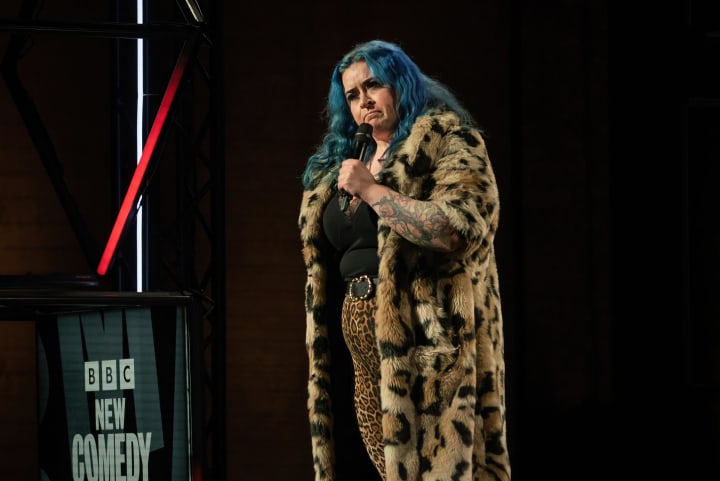
Maxine’s eloquence was put to very good use when back in December 2022 after two particularly gruelling years of service, the nurses in the UK made the historic decision to strike. Maxine as a newly qualified nursing associate found herself representing her striking colleagues across the media.
Her friend, Katy, had suggested that her stand-up comedy meant she would be well-placed for public speaking and put her forward for a training session for media interviews.
We had an exercise where he pretended to be an interviewer and I was being interviewed. After he said he loved hearing it in my accent and that I was ready to do interviews. I didn’t really get what he was going on about.
And then the next day he said can you do an interview with Kay Burley on Sky? I didn’t want to tell anyone. I’m not a politician, a social commentator, but I do have lived experience.
She ended up being interviewed by BBC, LBC, ITV, Channel 4, Sky News, Talk TV. She’s been interviewed by Vanessa Feltz, Trisha Goddard, Nick Ferrari (said with a with beautifully-timed eye roll that I wish I could convey with words) and Andrew Castle.
There were two sides to this experience. She was subjected to a level of abuse on social media that really brought her down. But also:
But I did enjoy it. What surprised me was how natural I found it, the interviews. I feel like when you’re talking about something that you know hand on heart is the right thing, it is very easy. Because at the end of the day we do deserve more money and the government is corrupt. People who are genuine, the general public get it when you’re telling the truth.
Her work during the strikes demonstrated, very clearly, that in the news cycles and on our TV screens:
There is a gap in the market for someone who is working-class, young, articulate and northern.
And importantly, it gave Maxine the confidence to apply for the BBC new comedy awards.
I don’t know why, but I just knew I’d be invited to audition. Don’t know why, just felt it. But it’s an odd process, you’re not allowed to talk about it with anyone and it is also all done by email. I screamed when I got the email. It felt like the validation I was looking for.
And then I went on the show and I was robbed*.
(*This was said as a joke, with her trademark laugh, but yes she was robbed, she was fabulous).
In all of the seriousness of our chat, I should add that the reason I wanted to interview Maxine is because she is funny. She can write a cracking punchline. She’s a gagster with a fiery passion. She has a particular talent for the pull-back and reveal (ooh-er, missus) type joke.
Writing comedy is a strange old process. Because you don’t know a joke is funny until you’ve said it out loud, at an open mic, to a bunch of strangers, who didn’t know there was a comedy show on.
For Maxine there are two ways of writing. First, there is the word play of looking at words with double meanings – working backwards from a punchline. And then second, are the stories that are based in reality. Creativity starts with real life.
Both of us admit as comedy writers – we don’t actually write that much down. Bullet points before the show. For the BBC New Comedy Award, Maxine had to write a transcript before the show, which was an interesting process, focussing the mind.
But as Maxine also said:
I don’t enjoy the feeling of keeping on script. The most fun I have is when I’m improvising on stage.
You can have a really well-honed five minutes or ten minutes, but the problem is, you’ve heard that joke before.
And that’s why when I asked her for final comment, it was:
Keep supporting live comedy!
But because she is a nurse who does comedy and a comedian who nurses, she had to add,
And support the strikes!
Support anything that matters to you or it will die.
If you've enjoyed what you have read, consider subscribing to my writing on Vocal. If you'd like to support my writing, you can do so by leaving a one-time tip or regular pledge. Thank you.
About the Creator
Rachel Robbins
Writer-Performer based in the North of England. A joyous, flawed mess.
Please read my stories and enjoy. And if you can, please leave a tip. Money raised will be used towards funding a one-woman story-telling, comedy show.


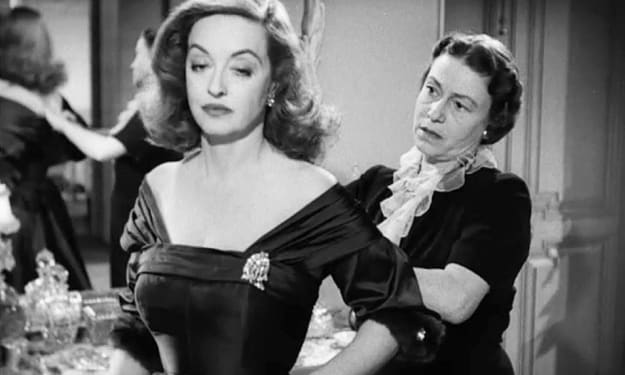

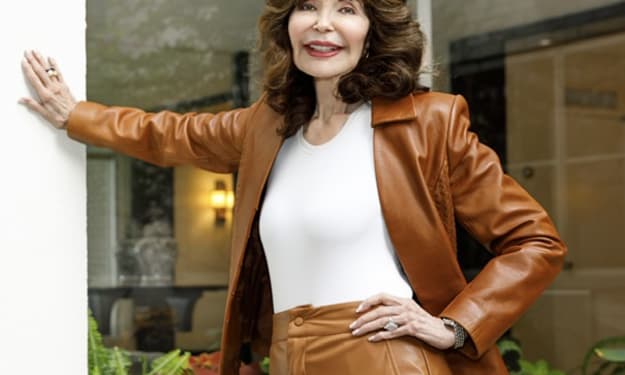

Comments (3)
She sounds amazing, and sometimes comedy is the only thing that gets nurses through their careers.
Awesome interview!!! Love it!!!
Okay, I'm hooked. And I want to use 'gobby' more often now. Seriously, thank you for sharing this!